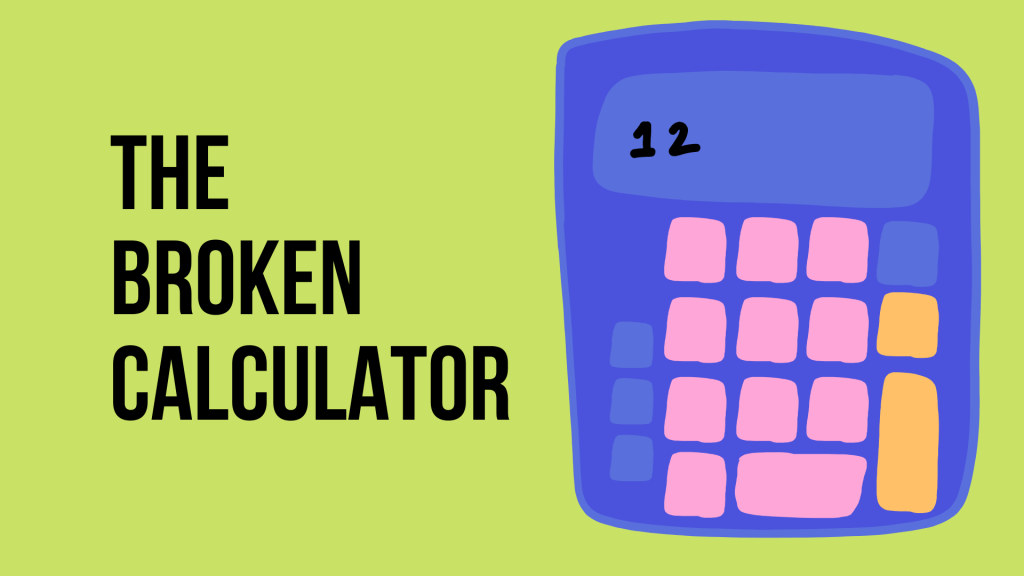By Jason Moses (11 yrs old, Part of the Mathematical Curiosities Online Program)

Imagine you have a broken calculator. Maybe you dropped it or your dog chewed up the keys. Suppose now, only the keys 1, 7 and + work. You would think it is pretty useless isn’t it? But in reality, there are many numbers one can make with it. For example, 2 (which is +1+1), 8 (+7+1) or 14 (+7+7) etc.
So how many numbers can I make with it? How many numbers can I not? Which is the largest number that I can’t make with these 3 keys? These are the very questions I sought to find the answers to. When I looked more closely, I realized that I could make all the natural numbers using just +, 1 and 7. This is because all numbers are divisible by 1.
I was excited and wanted to explore more. So, I tried to see what would happen if I used only the keys +, 2 and 7. In this case, I observed that there were 3 numbers that could not be made. These were 1, 3, and 5. I decided to explore even further. I wondered what would happen if I used the keys +, 3 and 7. I repeated this combination of 7 with digits upto 9. I realized that there was a pattern.
If you look at the table, you will observe the number of numerals you cannot make is a multiple of 3. For eg:-With keys +, 2 and 7, there are 3 numbers that are not possible, with keys +, 3 and 7, there are 6 numbers which are not possible. This pattern continues until you have only the keys + and 7. In this case only multiples of 7 can be formed. The pattern of multiples of 3 continues with 8 and 9 as well. Fascinating isn’t it?


I also looked at all other possible broken calculators with any 2 number keys and + sign working. I made another table to capture this data.This table is shown below.

Based on the data in the table above, I made these 4 observations:-
- If you have two even numbers, since two even numbers add up to another even number, no odd numbers can be formed. With this combination, it is impossible to make any odd number.
- If you have only one number key and the + sign working, for eg:- if you have only the keys + and 6 working, then only the multiples of 6 can be formed. So there are infinite numbers that cannot be made.
- If one of the number keys is a multiple of the other it follows the same pattern as rule 2. For eg: if 3, 6 and + are only keys possible, since 6 is a multiple of 3, only multiples of 3 are possible.
- With 1 as one of the number keys, all natural numbers can be made.
In essence, what looks like a useless broken calculator may not be as bad as it seems. Oh! It’s such fun to explore all the numbers you can make with it!
The Author of this post is Jason Moses, who is an explorer by nature and loves making Mathematical Discoveries. This post is a part of the explorations by students in the Mathematical Curiosities Program.
It’s a joy to see you explore with passion and fun baby. A toast to a lifetime of discoveries and learning! The table of 7, I found especially fascinating 😊